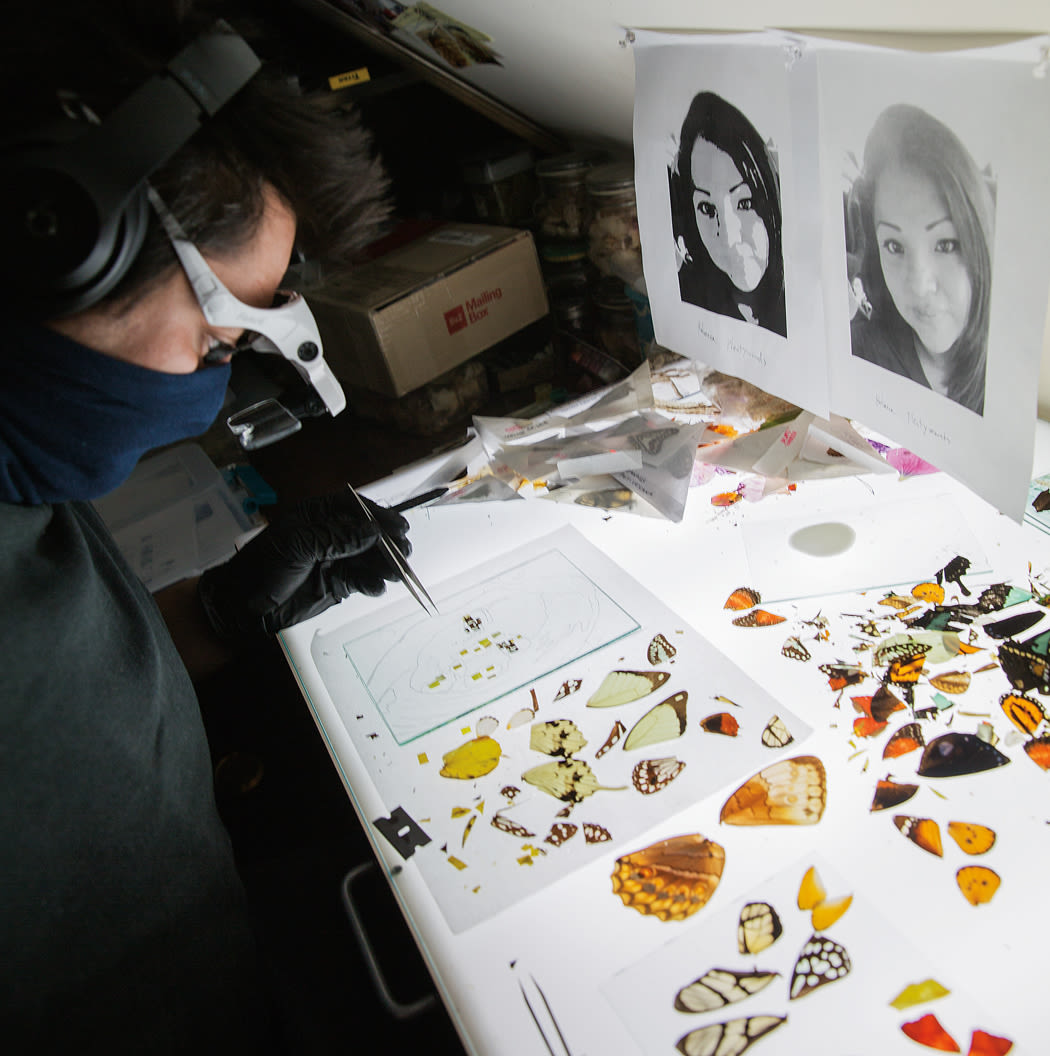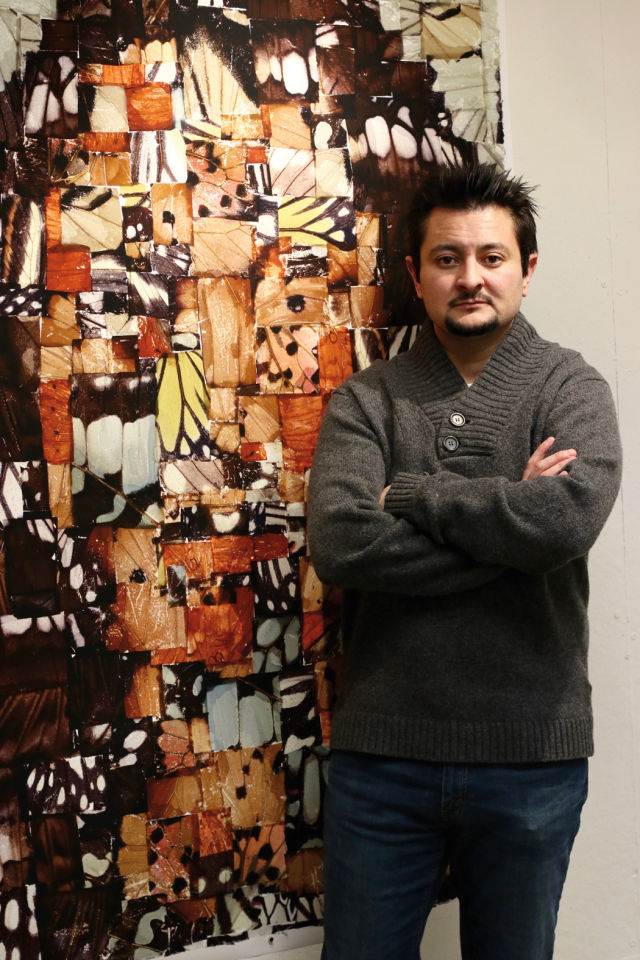This article by Dipika Rai was originally published in the Summer 2018 issue of Aspen Sojourner
Caroline Felicity Antone available at Ann Korologos Gallery in Basalt
IMAGE: COURTESY: BEN TIMPSON
Earlier this year, Ben Timpson, the photography and new-media studio coordinator for Anderson Ranch Arts Center, found himself profoundly moved by a television interview with Caroline Felicity Antone, a Native American and a rape survivor. In addition to being touched by her story, Timpson was shocked to hear the statistics of violence against Native American women, who are two and a half times more likely to be sexually assaulted than other women in the United States.
About the same time, a DNA test confirmed that Timpson is part Native American. With that revelation, he knew that he had to tell the stories of these largely forgotten women through his work.
From his early years as an artist, Timpson was drawn to the medium, believing Marshall McLuhan’s oft-quoted phrase, “The medium is the message.” One of his projects involved creating artworks with increasingly obsolete 35mm film, using just the film itself.
For this current endeavor—a series of portraits—Timpson chose the butterfly wing as his medium. “The butterfly represents metamorphosis, fragility, beauty, joy, and hope,” he says. “In tribes of the American Southwest, it is revered and respected.”
To say that the act of creating these portraits is a labor of love isn’t quite accurate—“love” might be too sweet a word to describe the meticulous process. Timpson’s labor is more akin to spiritual devotion.
It starts with a photograph of a murdered, missing, or domestically abused woman provided to him by her family, which Timpson makes a sketch of. With a jeweler’s precision, he then places and affixes hundreds of butterfly wings that he has cut up into small fragments onto a piece of glass, with the sketch underneath serving as a guide. He uses a mask (to keep from breathing on the delicate wings), headband magnifying glasses, scalpel, light box, several pairs of tweezers, and adhesive.

Timpson meticulously works with butterfly wings.
IMAGE: COURTESY: BEN TIMPSON
While the portraits of identified victims are true to their images, Timpson renders the portraits of unknown women—renderings of Jane Does that he sources online—as more abstract forms, elusive yet evocative, like the faded memory of someone familiar. In either case, the result is a 5-by-7-inch portrait now depicted entirely in butterfly wings. Timpson then scales up the image inch by inch using a camera with a 100mm lens and digitally stitching it together to create a 4-by-6-foot piece. This metamorphosis from tiny to colossal is one of the project’s most compelling aspects.
The use of butterfly wings turns the portraits into symbols of healing and transformation, helping to turn violence, disenfranchisement, loss, and despair into something beautiful and powerful. Says Timpson, “My hope is that this series will bring awareness to a very important issue through beauty and change.”

Ben Timpson
IMAGE: SHELLY SAFIR MAROLT
The work is not just meant to shed light on a largely under publicized issue, but also to honor and recognize the victims. “I want [the families] to have something beautiful to remember their loved ones by,” says Timpson. Moreover, part of the proceeds from the sale of each portrait helps fund Antone’s efforts to aid victims of violence on reservations. An exhibit is in the works.
“There is a Native American proverb that says the good wolf and the bad wolf both live inside each one of us,” says Timpson. “The one you feed is the one that takes your soul.” All of his subjects receive such loving attention under his tender care that the observer might feel that, in an alternate universe, there has been some closure, an end to a cycle of pain and the rebirth—transformative like the butterfly—into a new way of being. That’s Timpson’s way of feeding the good wolf.
[btn text=”View works by Ben Timpson” link=”https://korologosgallery.com/ben-timpson/” tcolor=”#ffffff” bcolor=”#b22025″ thovercolor=”#ffffff” bhovercolor=”#000000″]
To learn more about Ben Timpson, please contact Ann Korologos Gallery at 211 Midland Avenue, call (970) 927-9668, or email art@korologosgallery.com